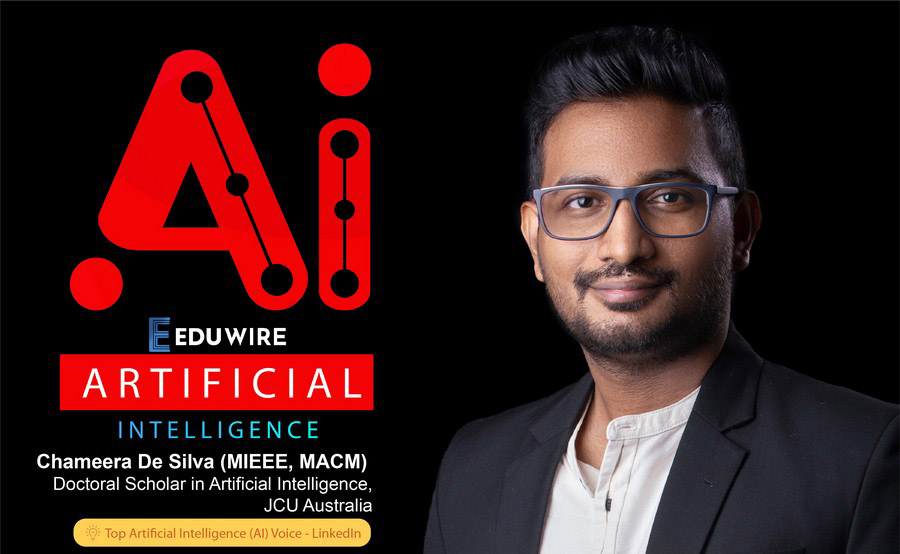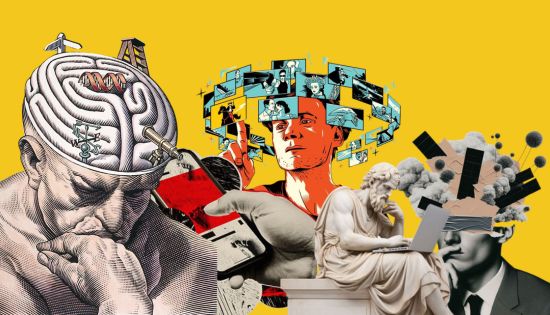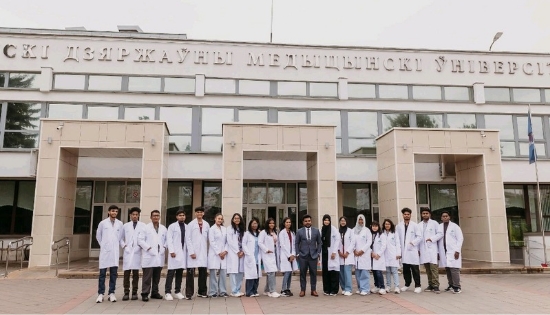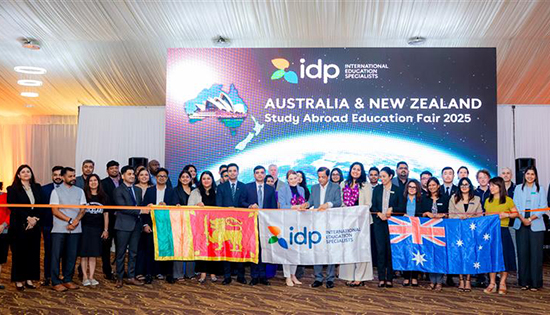Helpful or Harmful? How AI Shaped Education in 2025
The transformative impact of Artificial Intelligence (AI) on education in 2025 cannot be overstated. As AI became more advanced and accessible, it introduced revolutionary opportunities to enhance learning experiences while raising critical ethical and social concerns. This dual-edged evolution has left educators, policymakers, and students asking: is AI in education helpful or harmful? Let’s delve into how AI shaped the educational landscape this year.

The Positive Disruption of AI in Education
1. Personalized Learning Paths
One of the most celebrated aspects of AI in education is its ability to tailor learning experiences to individual students. AI-powered platforms like adaptive learning systems analyze students’ strengths, weaknesses, and learning styles to offer personalized content, pacing, and feedback. This ensures that no student is left behind while high performers can excel further.
For instance, AI-driven tools such as Duolingo and Khan Academy have elevated their game, adapting in real-time to users’ responses to provide a uniquely customized experience. In classrooms, AI-based systems help teachers identify struggling students early and provide targeted support.
2. Administrative Efficiency
AI has also eased the administrative burden on educators by automating tasks like grading, attendance tracking, and curriculum planning. This allows teachers to focus more on pedagogy and student interaction rather than being bogged down by repetitive administrative tasks. Tools like plagiarism detection software, AI chatbots for student inquiries, and scheduling assistants have become staples in schools and universities.
3. Accessible Education
AI has played a pivotal role in democratizing education. Language barriers are no longer obstacles, thanks to advanced AI translators. Moreover, text-to-speech and speech-to-text technologies have empowered students with disabilities to access educational content more effectively. Virtual tutors powered by AI are available around the clock, providing assistance to students in underserved regions who may not have access to quality teachers.
4. Immersive and Engaging Learning Experiences
2025 has witnessed AI-driven Virtual Reality (VR) and Augmented Reality (AR) technologies creating immersive learning environments. From exploring the surface of Mars to dissecting virtual frogs, these technologies have made learning engaging and experiential. AI has also enhanced gamified learning, motivating students through challenges, leaderboards, and rewards.

The Dark Side of AI in Education
Despite its benefits, AI’s integration into education has raised significant concerns.
1. Data Privacy and Security Risks
The massive amount of data collected by AI systems ranging from academic performance to personal habits has triggered alarm bells about privacy. In 2025, several incidents of data breaches highlighted vulnerabilities in educational AI systems. Students’ sensitive information being mishandled or exploited for commercial purposes has become a pressing issue.
2. Inequality in Access
While AI has improved access to education for many, it has also exacerbated existing inequalities. High-quality AI tools often come at a premium, leaving students from low-income backgrounds at a disadvantage. Furthermore, the digital divide where some regions lack internet connectivity or infrastructure has hindered AI’s promise of universal accessibility.
3. Dependency on AI
Over-reliance on AI has sparked fears of students and educators losing critical thinking and problem-solving skills. Students might become overly dependent on AI-generated answers, while teachers might trust AI analytics over their professional judgment, potentially eroding the human touch in education.
4. Ethical Concerns in Learning Algorithms
AI systems are only as unbiased as the data they are trained on. In 2025, concerns about algorithmic bias in educational AI tools have gained traction. For example, some systems have shown preferences for specific demographics, perpetuating systemic inequalities. Ensuring ethical AI development in education remains an unresolved challenge.
Striking the Balance: The Way Forward
The dichotomy of helpfulness and harm underscores the importance of thoughtful implementation. As AI continues to evolve, education stakeholders must strike a balance to ensure the technology benefits all while minimizing risks.
- Ethical AI Development: Governments and organizations must enforce regulations that promote ethical AI usage in education. Transparency in algorithms and diverse training data are crucial steps.
- Teacher Training: Educators need to be equipped to work alongside AI. Professional development programs should focus on helping teachers integrate AI tools without compromising their pedagogical expertise.
- Bridging the Digital Divide: Policymakers must prioritize infrastructure development and subsidized access to ensure all students benefit from AI-powered education.
- Continuous Oversight: AI systems in education should be subjected to regular audits to identify biases, ensure data security, and evaluate their effectiveness.
Key takeaways AI in education in 2025 has proven to be both a blessing and a challenge. While it offers unprecedented opportunities for personalized, accessible, and engaging learning, it also brings ethical, social, and economic challenges that must be addressed. Whether AI will ultimately be more helpful than harmful depends on how humanity navigates its complexities and commits to using it as a tool for equity and empowerment in education. The future of AI in education is promising, but only if approached with responsibility and care.
Chameera De Silva
Doctoral Scholar in Artificial Intelligence, JCU Australia
Top Artificial Intelligence (AI) Voice – LinkedIn
Related News
Business, BUT NOT AS USUAL – Southern Cross University Brings Bachelor of Business to Sri Lankan Students at NSBM Green University
SCU Sri Lanka National Launch | 19–21 February 2026 | NSBM Green University, Homagama Southern Cross University (SCU), one of Australia’s leading…
Read MoreBelarusian State Medical University:A Trusted Pathway to Studying Medicine Abroad with ISC Education
For many Sri Lankan students, gaining entry to a local medical faculty remains highly competitive despite strong academic performance. As a result,…
Read MoreAustralian Education Roadshow 2026 Set for February 20 and 22
Students aspiring to pursue higher education in Australia will have a unique opportunity this February as Jeewa Education hosts the Australian Education…
Read MoreAustralia & New Zealand Road Show 2026 – 21 February 2026
IDP Education Brings 30+ Leading Universities to Sri Lanka Education has always been one of the most powerful tools for personal growth…
Read MoreFour-Day Hulftsdorp Bookfest Begins at Sri Lanka Law College
The ‘Hulftsdorp Bookfest’, organized by the Sri Lanka Law Students’ Sinhala Union, will be held for four days starting today (17th) on…
Read MoreCourses
-

The future of higher education tech: why industry needs purpose-built solutions
For years, Institutions and education agencies have been forced to rely on a patchwork of horizontal SaaS solutions – general tools that… -

MBA in Project Management & Artificial Intelligence – Oxford College of Business
In an era defined by rapid technological change, organizations increasingly demand leaders who not only understand traditional project management, but can also… -

Scholarships for 2025 Postgraduate Diploma in Education for SLEAS and SLTES Officers
The Ministry of Education, Higher Education and Vocational Education has announced the granting of full scholarships for the one-year weekend Postgraduate Diploma… -

Shape Your Future with a BSc in Business Management (HRM) at Horizon Campus
Human Resource Management is more than a career. It’s about growing people, building organizational culture, and leading with purpose. Every impactful journey… -

ESOFT UNI Signs MoU with Box Gill Institute, Australia
ESOFt UNI recently hosted a formal Memorandum of Understanding (MoU) signing ceremony with Box Hill Institute, Australia, signaling a significant step in… -

Ace Your University Interview in Sri Lanka: A Guide with Examples
Getting into a Sri Lankan sate or non-state university is not just about the scores. For some universities' programmes, your personality, communication… -

MCW Global Young Leaders Fellowship 2026
MCW Global (Miracle Corners of the World) runs a Young Leaders Fellowship, a year-long leadership program for young people (18–26) around the… -

Enhance Your Arabic Skills with the Intermediate Language Course at BCIS
BCIS invites learners to join its Intermediate Arabic Language Course this November and further develop both linguistic skills and cultural understanding. Designed… -

Achieve Your American Dream : NCHS Spring Intake Webinar
NCHS is paving the way for Sri Lankan students to achieve their American Dream. As Sri Lanka’s leading pathway provider to the… -

National Diploma in Teaching course : Notice
A Gazette notice has been released recently, concerning the enrollment of aspiring teachers into National Colleges of Education for the three-year pre-service… -

IMC Education Features Largest Student Recruitment for QIU’s October 2025 Intake
Quest International University (QIU), Malaysia recently hosted a pre-departure briefing and high tea at the Shangri-La Hotel in Colombo for its incoming… -

Global University Employability Ranking according to Times Higher Education
Attending college or university offers more than just career preparation, though selecting the right school and program can significantly enhance your job… -

Diploma in Occupational Safety & Health (DOSH) – CIPM
The Chartered Institute of Personnel Management (CIPM) is proud to announce the launch of its Diploma in Occupational Safety & Health (DOSH),… -

Small Grant Scheme for Australia Awards Alumni Sri Lanka
Australia Awards alumni are warmly invited to apply for a grant up to AUD 5,000 to support an innovative project that aim… -

PIM Launches Special Programme for Newly Promoted SriLankan Airlines Managers
The Postgraduate Institute of Management (PIM) has launched a dedicated Newly Promoted Manager Programme designed to strengthen the leadership and management capabilities…
Newswire
-

Evacuations & road closures as heavy rain triggers landslide alerts
ON: February 21, 2026 -

Trump says he will raise tariffs to 15% after Supreme Court ruling
ON: February 21, 2026 -

Namal Rajapaksa begins London visit amid event cancellation claims
ON: February 21, 2026 -

‘Red’ landslide evacuation notices for four districts
ON: February 21, 2026 -

Yatinuwara under red landslide warning
ON: February 21, 2026












